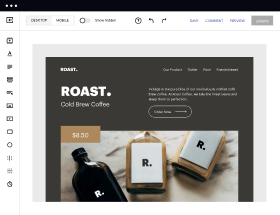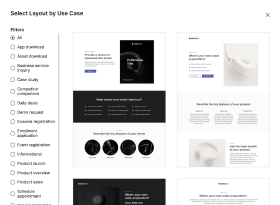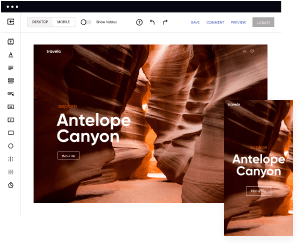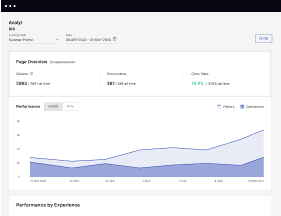Bring your ideas to life with Instapage's basic countdown timer page template
Unleash your creativity with the basic countdown timer page template. Try Instapage today.

Easy to build without coding
With the intuitive drag-and-drop builder, anyone on your team can create high-converting pages without any knowledge of code or design. Make enhancements to your landing page with custom widgets using Javascript, HTML/CSS, or third-party scripts.
Multiple layouts for any industry and goal
Select from 500+ landing page layouts built to boost conversions across industry-specific scenarios. Customize them by adjusting fonts, adding images, and generating on-brand content with the AI assistant. Quickly scale with Instablocks® and Global Blocks that you can save, reuse, and update globally.
Loads fast and looks polished on any device
Every template is responsive, which means they present professionally on any device and load blazingly fast with our Thor Render Engine. You can also power them up with Google AMP technology to deliver an unparalleled mobile experience and drive higher conversions.
Robust analytics & experimentation
Get real-time updates and reporting across all your devices, showing the number of visitors, conversions, cost-per-visitor, and cost-per-lead. Launch AI-powered experiments, run A/B tests, and use heatmaps to analyze user behavior, then optimize your landing page to maximize conversions.
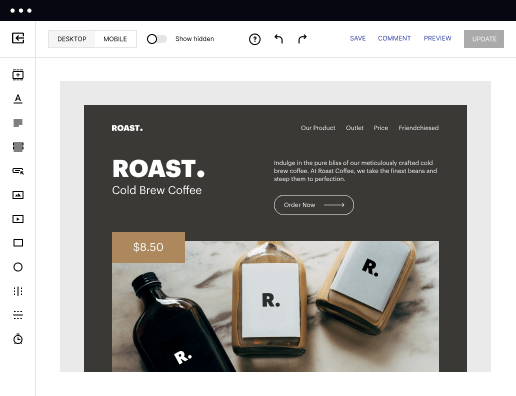
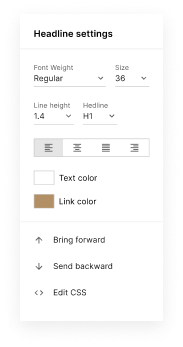
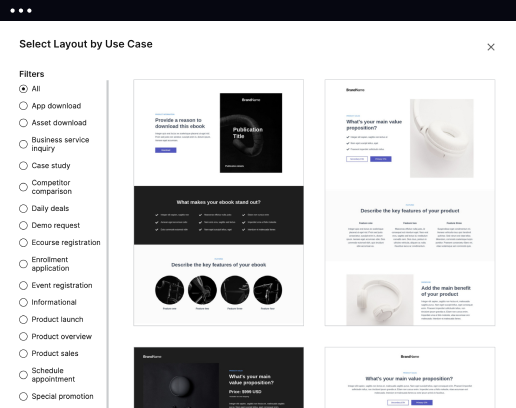
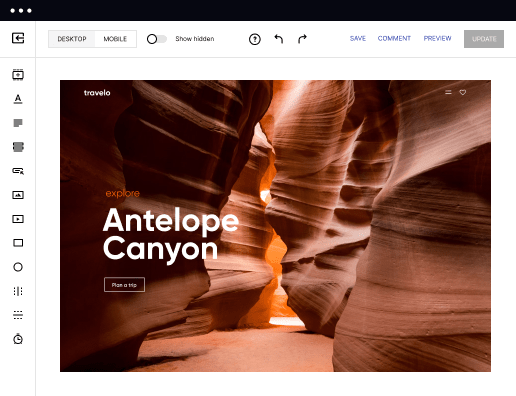
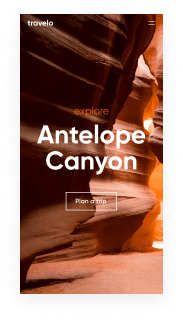
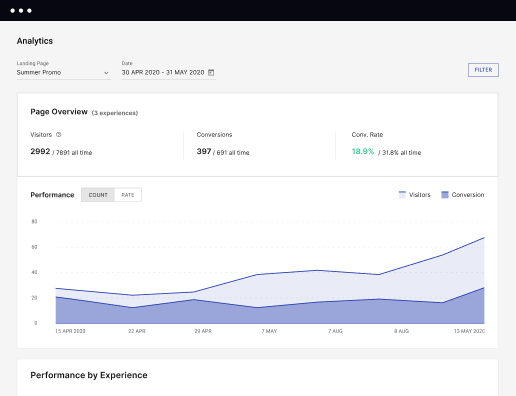
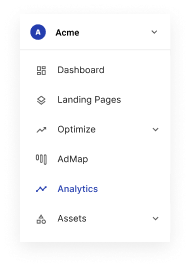
Easy to build without coding
With the intuitive drag-and-drop builder, anyone on your team can create high-converting pages without any knowledge of code or design. Make enhancements to your landing page with custom widgets using Javascript, HTML/CSS, or third-party scripts.
Multiple layouts for any industry and goal
Select from 500+ landing page layouts built to boost conversions across industry-specific scenarios. Customize them by adjusting fonts, adding images, and generating on-brand content with the AI assistant. Quickly scale with Instablocks® and Global Blocks that you can save, reuse, and update globally.
Loads fast and looks polished on any device
Every template is responsive, which means they present professionally on any device and load blazingly fast with our Thor Render Engine. You can also power them up with Google AMP technology to deliver an unparalleled mobile experience and drive higher conversions.
Robust analytics & experimentation
Get real-time updates and reporting across all your devices, showing the number of visitors, conversions, cost-per-visitor, and cost-per-lead. Launch AI-powered experiments, run A/B tests, and use heatmaps to analyze user behavior, then optimize your landing page to maximize conversions.
All the features you need to build lead-generating landing pages
Explore more featuresLearn how to build top-performing landing pages for any goal
FAQs
Leading the way in building high-performing landing pages





Create effective landing pages with Instapage's powerful tools
Accelerating and optimizing your marketing campaigns is crucial for maximizing ROI. Instapage offers the most robust landing page and conversion rate optimization (CRO) platform designed specifically for marketers in various industries including business services and tech. With its all-in-one solution, you can manage everything from lead generation to page personalization without requiring advanced technical skills.
Step 1: Choose the right template for your campaign
Start by selecting one of the 100+ ready-to-use templates that Instapage offers. These templates are designed to capture leads effectively and are optimized for high conversion rates. You can pick a template that suits your specific needs based on your target audience and campaign goals.
- Variety of templates: Different layouts cater to various industries and marketing objectives.
- High-converting design: Built with proven design principles that guide visitors toward conversion.
- Ease of use: Quickly adapt templates to match your brand’s style without extensive coding.
Step 2: Optimize your landing page
Once you have your template, it's time to optimize it for higher conversions. Instapage offers built-in experimentation features, including A/B testing and heatmaps, which provide insights into user behavior. This will help you tweak your pages for better performance.
- A/B testing: Compare different versions of your landing page to see what resonates best with your audience.
- Heatmaps: Visualize where users click and interact on your page to make data-driven decisions.
- Analytics dashboard: Track performance metrics to continually refine your marketing efforts.
Step 3: Personalize your content
Creating tailored experiences for your visitors can significantly improve engagement and conversion rates. With Instapage’s dynamic text replacement features and AdMaps, you can deliver highly personalized content that speaks directly to the needs of different audience segments.
- Dynamic text replacement: Adjust messages on the fly based on user segments to enhance relevance.
- AdMaps: Align specific ads to corresponding landing pages to ensure a consistent message.
- Data tracking: Monitor metrics at an audience level to refine targeting strategies.
Implementing these steps will enable you to produce high-performing landing pages that maximize the effectiveness of your marketing campaigns. Instapage not only simplifies the creation process but also provides the necessary tools to continually optimize for success.
Now is the time to leverage the power of effective landing pages. Start optimizing your campaigns with Instapage today.
Join thousands of successful marketers optimizing their strategies with Instapage. Sign up now to experience our powerful landing page platform!
Creating a Basic Countdown Timer Page Template
Understanding the essence of countdown timers
To start off, countdown timers play a crucial role in web design by creating urgency and prompting users to take action. But what exactly is a countdown timer? Essentially, it is a digital clock that counts down from a specified time to zero, often associated with impending events such as product launches, sales, or deadlines. They're particularly prevalent in marketing and e-commerce sites where every second counts in engaging potential customers.
From limited-time offers to event registrations, countdown timers can significantly enhance the web experience. Not only do they provide essential time notifications, but they also leverage psychological impulses. The ticking clock can trigger a sense of urgency, making users feel as though they need to act quickly or risk missing out. This tactic can effectively increase conversions and elevate overall customer engagement.
The building blocks of a basic countdown timer page
When designing a countdown timer page, understanding its core components is essential for creating a user-friendly experience. The timer display format is a foundational element, typically showcasing days, hours, minutes, and seconds. This straightforward breakdown helps users visualize the time remaining until an event. Moreover, interactive functionalities like start and reset buttons can enhance user engagement, allowing for a more dynamic experience.
Additionally, integration with promotional content, such as special offers or product releases, is vital. A countdown timer can serve as the centerpiece of a landing page, drawing visitor attention to key messages. Whether you're showcasing a seasonal sale or a product launch, embedding a timer within promotional content can significantly amplify user interest and engagement.
Diving into the code: constructing your countdown timer
To build a basic countdown timer page, start with an essential HTML structure that forms the backbone of your design. This structure should clearly define the timer's display and allow space for additional content. A straightforward code snippet can help illustrate this basic setup:
Start
Reset
Once the HTML foundation is in place, the next step is styling with CSS to make the countdown visually appealing. Selecting a color scheme that contrasts well and fonts that are easily readable will enhance the timer's impact, ensuring it captures user attention. Moreover, consider using visually striking elements that align with your brand's aesthetics to create a cohesive design.
Functionality spotlight: leveraging JavaScript for interactive timers
JavaScript plays a crucial role in the countdown timer's functionality, handling the logic behind setting and updating the countdown. The heart of your countdown lies in its function, which includes essential commands for calculating time left. An example countdown function can be outlined easily by setting the end time, calculating the remaining time, and dynamically updating the display. Here’s a simple structure to illustrate:
Set the end time using a date variable.
Calculate remaining time by subtracting the current time from the end time.
Update the HTML content within the countdown display every second.
Additionally, implementing advanced features can enhance your timer's appeal, such as supporting different time zones. By allowing users from various regions to view the countdown in their local time, you can improve their experience and engagement.
Event handling with modern JavaScript
To ensure your countdown operates smoothly, utilizing event listeners in JavaScript is imperative. The 'document.addEventListener' method allows the countdown to start exactly when the page loads. This technique alleviates issues where timers might begin counting down before the user sees them, ensuring that visitors don’t miss any critical moments.
Add an event listener to trigger the countdown on 'DOMContentLoaded'.
Ensure time updates happen in real-time as the page remains open.
Synchronize the timer’s start time with the user’s interaction.
Successfully implementing the 'DOMContentLoaded' event allows you to position your countdown effectively and guarantees that it is visible to users at its inception. This practice minimizes tension caused by premature countdowns and enhances user experience.
Optimizing countdown timers for performance and user engagement
With the increasing use of mobile devices for browsing, ensuring your countdown timer is responsive is non-negotiable. Implementing CSS media queries allows your timer layout to adapt fluidly across different screen sizes, providing users with consistent visibility whether they are on a smartphone, tablet, or desktop.
Use relative units (e.g., percentages) in your styles.
Test your layout on various devices to ensure functionality.
Prioritize important elements for mobile views.
Additionally, SEO considerations should not be overlooked. While countdown timers may not directly influence search rankings, their impact on user engagement can indirectly affect performance. Optimize your page load times by minimizing scripts and using efficient code to ensure that your countdown timer enhances user experience without slowdowns.
Best practices for effective countdown timer implementation
Placement of countdown timers on your landing pages is key to maximizing their visibility. Strategically position them above the fold, allowing users to notice them without scrolling. For promotional campaigns, integrating timers with calls to action can compel visitors to act before time runs out. By placing clear, engaging prompts alongside your countdown timers, you drive both urgency and engagement effectively.
Position timers prominently on your landing pages.
Align countdowns with calls to action for better conversions.
Utilize analytics to measure the effectiveness of your countdown placements.
Additionally, testing and iteration are paramount. Leverage tools for A/B testing different countdown designs and placements to determine what resonates best with your audience. Gather metrics to refine your designs over time and ensure that your countdown timers are continually optimized for user engagement.
Conclusion: the empowerment of countdown timers in modern web design
To summarize, countdown timers represent a powerful tool in modern web design, enhancing the user experience and driving up conversions. By effectively utilizing countdown features, marketers can create more engaging landing pages that effectively leverage urgency and user interest. As technology evolves, anticipating future developments in countdown timer functionalities will be crucial in maintaining that competitive edge.
Engaging readers with real-world use cases
Looking at successful implementations can provide additional insights into how countdown timers can be leveraged effectively. Many businesses utilize countdown timers during seasonal sales or product launches, creating a buzz around their offerings. Take, for example, a tech company that used a countdown timer on their product launch page. The timer not only increased visitor engagement but also helped drive significant conversions during the launch window.
Case studies reveal that businesses see improved click-through rates and overall higher sales when timers are integrated thoughtfully into their marketing strategies. Analyzing these real-world examples can offer actionable strategies for incorporating countdowns into your marketing efforts.
Future innovations in countdown timers
The horizon for countdown timers is rich with potential, as technologies continue to advance. Innovations such as integrating countdowns with visual animations or augmented reality could change how users interact with these elements. Additionally, machine learning can open pathways for tailoring countdown experiences based on user behaviors and preferences.
By keeping abreast of emerging technologies, marketers can implement countdowns that are not only functional but also create a memorable experience for users. Observing and adapting to shifts in user engagement can lead to novel opportunities for leveraging countdown timers in creative and effective ways.
Ready to skyrocket conversions?
Supercharge your ad campaigns with high-performing landing pages
Get started



